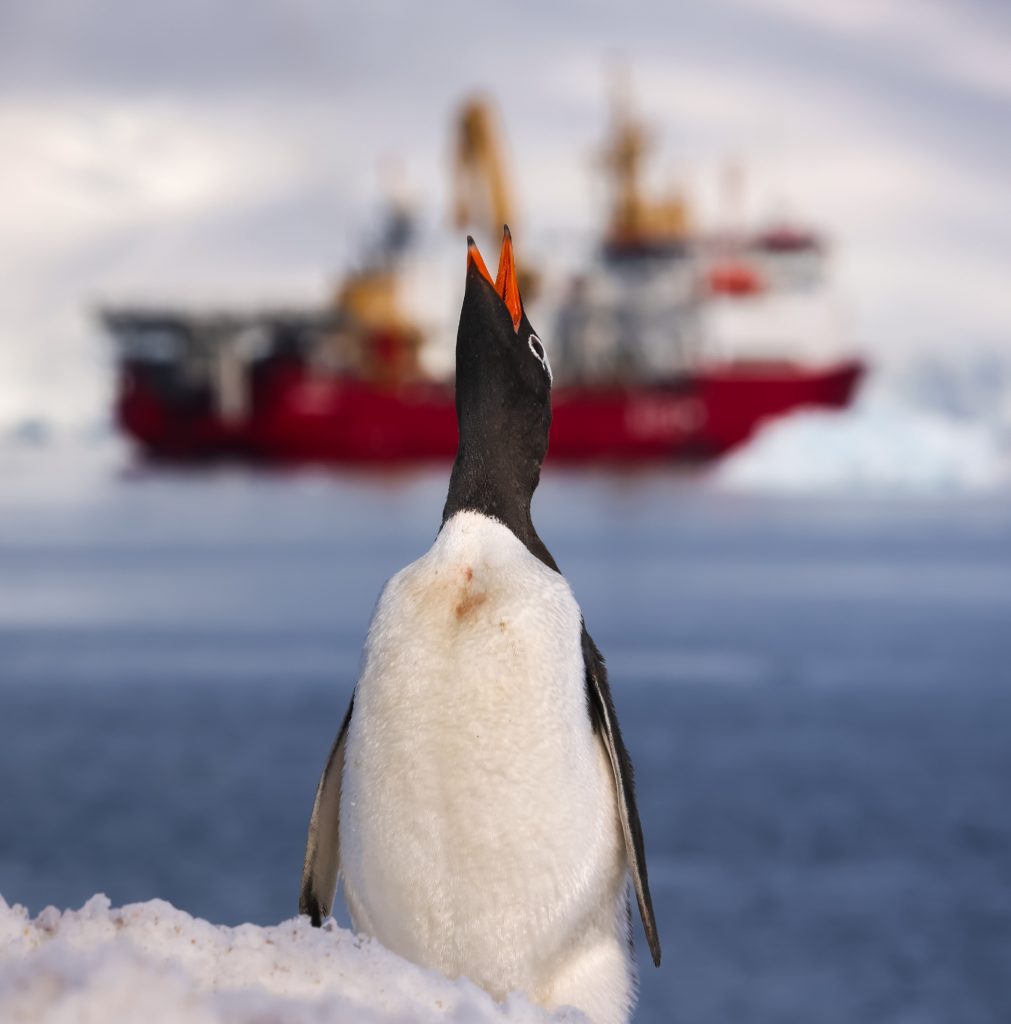
Royal Navy sailors from HMS Protector are taking meticulous steps to avoid spreading dangerous bird flu to remote penguin colonies as the ice breaker carries out scientific and conservation work in Antarctica.
Researchers have warned of ‘one of the largest ecological disasters of modern times’ if the virus reaches remote penguin populations in the peninsula.
As HMS Protector carries out her annual patrol of the White Continent, strains of avian influenza have been detected in the sub-Antarctic – HMS Forth worked with the Animal and Plant Health Agency to take samples for analysis which proved the disease had reached South Georgia.
Protector’s researchers and scientist are carrying out a range of vital work across the Antarctic during her deployment, including studying the human impact on the continent, monitoring penguin populations and helping the UK Antarctic Heritage Trust maintain historic buildings/bases.
The ship is taking measures to ensure the flu is not introduced to vulnerable wildlife – thoroughly cleaning and scrubbing clothing and kit to remove anything that could be a contaminant.
“Penguins are highly social birds. They gather in large colonies, often numbering in the thousands, to build nests and raise their chicks,” explains Lieutenant Commander James Winsor, Protector’s First Lieutenant. “One of the biggest threats to Antarctica’s unique wildlife since 2002 has been avian flu.
“HMS Protector has been taking steps to ensure that we don’t introduce or spread avian flu amongst the wildlife. We will check our kit, we will clean any seams and Velcro, for small seeds or debris, hoover out any pockets to remove any soil and anything which could contaminate the shore.
“We will check out boots, clean them and then put them in a biocide bath – similar to those used during the foot and mouth pandemics. Avian flu is such an issue in Antarctica because most species of seabird down here are very sociable. They are in large colonies and tightly knit for support.
“If the flu is introduced to those colonies it would have a devastating effect. The Royal Navy have a responsibility to protect the environment where it can.”
Before heading to the ice, these procedures were put into practice during research trips to the Gentoo penguin colony at Bertha’s Beach in the Falkland Islands.
University of Portsmouth scientists, representatives from Oceanites penguin-monitoring programme and seven members of the UK Antarctic Heritage Trust – with their materials and stores for the season ahead – joined Protector as she headed from the Falklands on a mission with several stops which would eventually take the ship to Rothera Research Station, the British Antarctic Survey base on Adelaide Island.
For the first time HMS Protector is working with penguin counters from Oceanites, the world’s only publicly supported non-profit Antarctic research programme based in Washington DC. They primarily collect and collate penguin colony data from across the Antarctic, work which aims to increases international awareness of the impact of climate change.
Their penguin counters usually collaborate with expedition/tourist ships visiting the Antarctic Peninsula, in order to access penguin colonies. However, these ships visit a limited number of colonies during the breeding season, so Protector is helping two Oceanites penguin counters – Alastair Wilson and Ros Green – to access colonies that are rarely visited, and collect data for sites that haven’t been monitored for a decade or more.
One site hasn’t been counted since 1983. The count data will be invaluable for updating Oceanites penguin population trends, and will enable them to assess which penguin species are doing well, or not so well, given the increasing effects of climate change.
“HMS Protector’s crew have welcomed us into their on board family, and helped us collect data that will protect penguins for decades to come. We’ve had an amazing time,” Ros said.